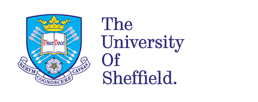
Kharroubi, S. A., O'Hagan, A. and Brazier, J. E.
Department of Probability and Statistics, University of Sheffield, Sheffield, England and School of Health And Related Research, University of Sheffield, Sheffield, England
Publication details: Applied Statistics 54, 879-895, 2005.
A fundamental benefit conferred by medical treatments is to increase the health-related quality of life (HRQoL) experienced by patients. Various descriptive systems exist to define a patient's health state, and we address the problem of assigning a HRQoL value to any given state in such a descriptive system. Data derive from experiments in which individuals are asked to assign their personal values to a number of health states.
We construct a Bayesian model that takes account of various important aspects of such data. Specifically, we allow for the repeated measures feature that each individual values several different states, and the fact that individuals vary markedly in their valuations, with some people consistently providing higher valuations than others. We model the relationship between HRQoL and health state nonparametrically.
We illustrate our method using data from an experiment in which 611 individuals each valued up to 6 states in the descriptive system known as the SF-6D. Although the SF-6D distinguishes 18,000 different health states, only 249 of these were valued in this experiment. We provide posterior inference about the HRQoL values for all 18,000 states.
Keywords: Bayesian inference; elicitation; health economics; health-related quality of life; health state valuation; Markov chain Monte Carlo; SF-6D.